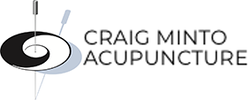FREQUENTLY ASKED QUESTIONS
Watch this video below on how acupuncture works:
What Conditions Do Patients Receive Acupuncture For?
Patients come to my clinic with problems including:
Arthritis (Osteo' and Rheumatoid)
Asthma
Back pain
Emotional problems
Fatigue (including ME)
Infertility (both male and female, and IVF support)
Fibromyalgia
Gynecological disorders
Headaches (both tension and Migraine)
IBS
Joint pain
Knee pain
Menopausal Symptoms
Neck pain
Pregnancy (well being and related disorders including nausea)
Shoulder pain (including frozen shoulder)
Sinus pain
Skin diseases
Sleep problems
Sports injuries
Stress
Tennis Elbow
In an official report, 'Acupuncture: Review and Analysis of Reports on Controlled Clinical Trials', the World Health Organisation (WHO) gives a list of symptoms, diseases and conditions that have been shown through controlled trials to be treated effectively by acupuncture. If you are interested you can access this at: http://apps.who.int/medicinedocs/en/d/Js4926e/5.html
Is Acupuncture Safe?
In competent and well-trained hands extensive research has shown that acupuncture is one of the safest medical treatments you can undertake. Two surveys have been published in the British Medical Journal with over 66,000 treatments reviewed. Only a handful of minor and transient side affects were recorded. These included dizziness or bruising, which were mild and self-correcting. Needles are single use, and disposed of immediately after treatment.
How Many Treatments Will I Need?
This depends on the condition and the person being treated. More chronic (longer term) conditions generally take longer to treat. Often a course of 6 sessions is recommended, usually once a week or fortnight, with progress then assessed at the end of this. Recent onset (acute) problems can often be treated more quickly, with 2-3 sessions being sufficient. At the end of the first session I can usually give an idea as to how many sessions will be required. However, this is just a guideline as people and their powers of recovery vary.
Generally speaking the effects of the treatment are accumulative, meaning that gradual and increasing improvement is felt throughout the course of sessions.
Should I Tell My Doctor I Am Having Acupuncture?
Yes. It is important that you keep your GP and other health care workers informed of your treatment. It is also important that you continue with any existing treatment that has been prescribed for you.
What Can I Expect From A Consultation And Treatment?
The first consultation takes approximately 45mins-1Hour. As well as assessing your presenting complaint a full medical history is taken, including questions on lifestyle, stress, diet and bodily functions, followed by a physical examination of the body, tongue and pulses on both wrists. This part of Oriental diagnosis allows the practitioner to assess where the imbalance lies in the body, according to Chinese Medical principles.
It is recommended that you wear loose clothing and you may be asked to undress for the examination (a gown is provided if necessary).
After this it is recommended that you refrain from vigorous exercise and not drink alcohol for a few hours.
Who Comes For Acupuncture Treatment?
All ages of men, women and children, can benefit from acupuncture. Even young children can be treated with acupressure (acupuncture points are massaged, rather than needled). Balancing the body is beneficial for a person of any age and allows them to experience the best health that is available to them.
Arthritis (Osteo' and Rheumatoid)
Asthma
Back pain
Emotional problems
Fatigue (including ME)
Infertility (both male and female, and IVF support)
Fibromyalgia
Gynecological disorders
Headaches (both tension and Migraine)
IBS
Joint pain
Knee pain
Menopausal Symptoms
Neck pain
Pregnancy (well being and related disorders including nausea)
Shoulder pain (including frozen shoulder)
Sinus pain
Skin diseases
Sleep problems
Sports injuries
Stress
Tennis Elbow
In an official report, 'Acupuncture: Review and Analysis of Reports on Controlled Clinical Trials', the World Health Organisation (WHO) gives a list of symptoms, diseases and conditions that have been shown through controlled trials to be treated effectively by acupuncture. If you are interested you can access this at: http://apps.who.int/medicinedocs/en/d/Js4926e/5.html
Is Acupuncture Safe?
In competent and well-trained hands extensive research has shown that acupuncture is one of the safest medical treatments you can undertake. Two surveys have been published in the British Medical Journal with over 66,000 treatments reviewed. Only a handful of minor and transient side affects were recorded. These included dizziness or bruising, which were mild and self-correcting. Needles are single use, and disposed of immediately after treatment.
How Many Treatments Will I Need?
This depends on the condition and the person being treated. More chronic (longer term) conditions generally take longer to treat. Often a course of 6 sessions is recommended, usually once a week or fortnight, with progress then assessed at the end of this. Recent onset (acute) problems can often be treated more quickly, with 2-3 sessions being sufficient. At the end of the first session I can usually give an idea as to how many sessions will be required. However, this is just a guideline as people and their powers of recovery vary.
Generally speaking the effects of the treatment are accumulative, meaning that gradual and increasing improvement is felt throughout the course of sessions.
Should I Tell My Doctor I Am Having Acupuncture?
Yes. It is important that you keep your GP and other health care workers informed of your treatment. It is also important that you continue with any existing treatment that has been prescribed for you.
What Can I Expect From A Consultation And Treatment?
The first consultation takes approximately 45mins-1Hour. As well as assessing your presenting complaint a full medical history is taken, including questions on lifestyle, stress, diet and bodily functions, followed by a physical examination of the body, tongue and pulses on both wrists. This part of Oriental diagnosis allows the practitioner to assess where the imbalance lies in the body, according to Chinese Medical principles.
It is recommended that you wear loose clothing and you may be asked to undress for the examination (a gown is provided if necessary).
After this it is recommended that you refrain from vigorous exercise and not drink alcohol for a few hours.
Who Comes For Acupuncture Treatment?
All ages of men, women and children, can benefit from acupuncture. Even young children can be treated with acupressure (acupuncture points are massaged, rather than needled). Balancing the body is beneficial for a person of any age and allows them to experience the best health that is available to them.
Does Acupuncture Hurt?

Acupuncture needles are incredibly fine, like a hair, nothing like hypodermic needles used for inoculations and blood tests. Subsequently there is usually very little or no pain experienced once the needles are inserted, and generally only a slight dull ache or tingling, which soon wears off. My treatments usually consist of only 2-5 points being needled as I have found this gives the body a simple and clear message, resulting in a more focused treatment and better results. Many patients who have an aversion to needles before they come are pleasantly surprised at how little discomfort is felt.
© Craig Minto 2013
© Craig Minto 2013
